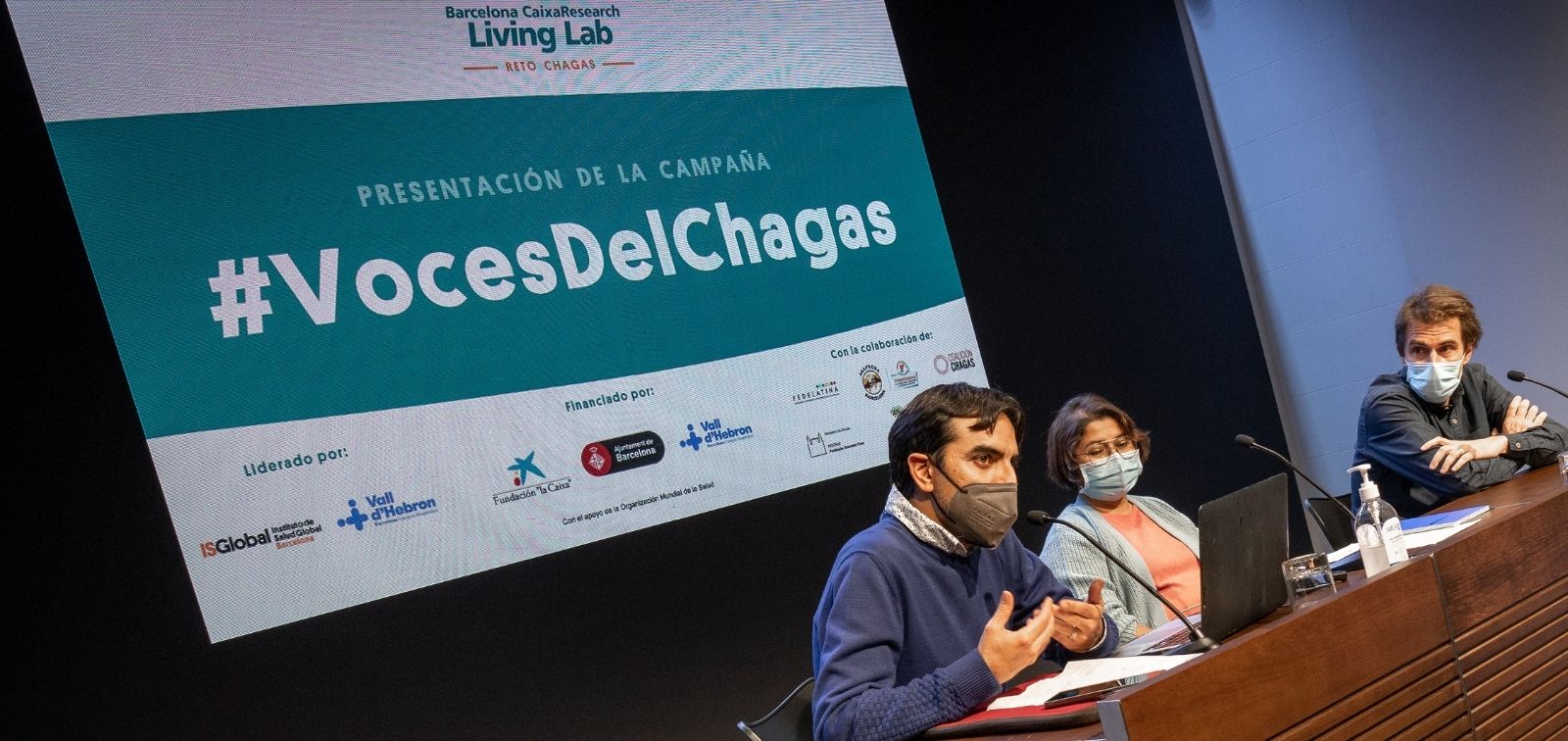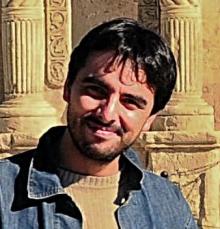Chagas Disease Workshop with a Regional Perspective
The #VocesDelChagas campaign was presented in a parallel session by the CaixaResearch Living Lab team
17.03.2022
The XVII Workshop on Chagas Disease—organised by ISGlobal in collaboration with the Fundación Mundo Sano and, for the first time this year, with the support of the Adelante 2 initiative—took place on 14 and 15 March last and brought together over 500 people from 33 countries in a hybrid virtual and in-person event. The workshop was initially planned as an in-person event to be held simultaneously in both Barcelona (Spain) and Tarija (Bolivia), with the additional possibility for virtual attendees to view the programme online. However, the course of the COVID-19 pandemic finally made it impossible to hold an in-person event in Bolivia.
The common aim of the experts who participated in this event was to advance the control and elimination of Chagas disease. To do this, they shared experiences and innovations in the care and treatment of people living with Trypanosoma cruzi infection and Chagas disease in a series of seven lectures and two practical workshops.
In the opening session, Joanna Pritchard (deputy director of the US Neglected Tropical Diseases Support Center [NTD-SC]) stressed the need for a robust monitoring and evaluation system if we are to achieve the ambitious targets set by the World Health Organization (WHO) and the Pan American Health Organization (PAHO) for 2030. She also discussed the targets proposed by the PAHO for the control of mother-to-child transmission.
In the following round table, Lourdes Ortiz of the Bolivian Chagas Platform analysed the challenges faced by people affected by the disease at the different levels of the health care system, drawing on the experience of the Bolivian Chagas Platform, which has expanded from an initial phase involving seven health centres to full integration into the country's national health system. In the final session on the first day, experts shared the findings of field studies on the implications of the COVID-19 pandemic for the symptoms and management of Chagas disease, including a presentation by Favio Crudo of the Mundo Sano Foundation. Colin Forsyth of the DNDi discussed the impact of COVID-19 on the lives of people affected by Chagas disease.
There was ample evidence throughout the Workshop of the commitment of Paraguay to improving the care of Chagas disease, following the country’s great achievements in controlling the vector. The Workshop welcomed the participation of several experts from Paraguay’s Ministry of Public Health and Social Welfare, including Gustavo Chamorro, director of SENEPA, and Vidalia Lesmo, head of the country’s national Chagas programme. In one session, results were presented of the Triangular Cooperation Project between Bolivia, Paraguay and Spain, an initiative undertaken to foment the exchange of knowledge between professionals trained by the Bolivian Chagas Platform and their peers in Paraguay. One of the outcomes highlighted by the speakers was an increase in the number and engagement of people with significant reputations in their specialties or area, which resulted in a considerable increase in medical care for patients with Chagas, observed immediately after these people were trained. A concrete example cited was the urban area of Asunción, where the number of treatments started increased by 400% compared to the same period in the preceding year.
In the closing session, Luis Gerardo Castellanos, head of PAHO’s Communicable Disease Control Unit, discussed the policy on the elimination of neglected infectious diseases in the Americas and the state of current initiatives, and emphasised the challenges involved in implementing a people-cantered model of care for diseases like Chagas. Castellanos also spoke about the immense impact of the COVID-19 pandemic on health systems everywhere and the need to support the efforts of individual countries to help them adjust to the new scenario and to consolidate the great advances in elimination that have already been achieved in the region and those it is hoped will be achieved in the coming decade.
Awareness Campaign #VocesDelChagas
The Chagas Workshop was followed by the presentation of the #VocesDelChagas (#VoicesOfChagas) campaign, an initiative that has emerged from a collaboration between private individuals, professionals and various organisations within the framework of the Barcelona CaixaResearch Living Lab project with the aim of ending the stigma surrounding Chagas disease and making known the personal stories of those affected.
In a series of short videos, Emilia, Emiliana and Walter talk about their experiences with Chagas disease to encourage collective action. The goal of the campaign, which has been centred on and guided from the beginning by the people affected, is that everyone who has the infection should join the campaign and tell their own story.





